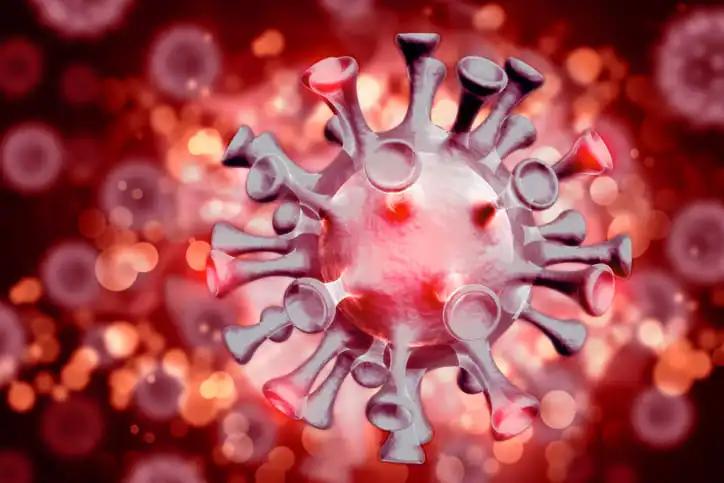KEY TAKEAWAYS
- This Phase 2 study evaluated ceralasertib with durvalumab in advanced NSCLC with and without RAS mutations.
- Pre-specified clinically relevant outcomes were confirmed ORR, DCBR at 24 weeks, mPFS and mOS.
- The study showed early evidence for the effectiveness of the ceralasertib/durvalumab combination in NSCLC pts previously treated with ICB.
Ceralasertib (AZD6738) is a highly specific and potent inhibitor of Ataxia Telangiectasis and Rad3 Related (ATR) kinase. In cancer cells, ceralasertib leads to DNA damage and the formation of micronucleated cells due to unresolved genomic issues. This activates a similar interferon regulatory and nucleic acid recognition response as seen in radiation exposure. Micronuclei are susceptible to rupture, causing DNA to leak into the cytoplasm and activating cGAS. This, in turn, elevates levels of IFN-stimulated genes like PD-L1 and boosts immune cell infiltration, making the cellular environment more conducive to immune checkpoint blockade (ICB). Notably, cells with oncogenic RAS mutations activate ATR, implying that these RAS-mutant cells could be particularly sensitive to a combination of ceralasertib and durvalumab.
In the National Lung Matrix Trial (NLMT), a Bayesian adaptive design is employed to assess the efficacy of targeted agents in molecularly classified cohorts. In this study, ceralasertib was combined with durvalumab for Arm J, which consisted of Cohorts J1 (RAS mutant) and NAJ (RAS wild-type). Durvalumab was administered intravenously at 1500mg on the first day, and ceralasertib was orally taken at 240mg twice daily from day 15 to 28 in each 28-day cycle. Pre-set outcomes included confirmed objective response rate (ORR), durable clinical benefit rate at 24 weeks (DCBR), median progression-free survival (mPFS), and median overall survival (mOS).
The study provided Bayesian estimates for ORR and DCBR with 95% credible intervals, as well as median times for mPFS and mOS events. While the target enrollment was 30 patients (pts) for each cohort, this adaptive design allows for meaningful data collection with fewer participants, offering insights into the most promising drug-biomarker combinations.
The study ran from July 2, 2020, to October 28, 2021. Similar co-mutation frequencies in STK11, PI3K pathway, and cell cycle genes were observed in both KRAS mutant and wild-type groups. Only one ATM mutant NSCLC case was present across both cohorts. Out of the 20 recruited KRAS mutant pts, all were suitable for efficacy evaluation. Eighteen of these had prior exposure to immune checkpoint blockade (ICB). The Durable Clinical Benefit Rate (DCBR) among these ICB-exposed KRAS mutant pts was 41.8% (CrI 21.5 – 64.3%), with a response rate of 13.8%, a median Progression-Free Survival (mPFS) of 5.95 months, and a median Overall Survival (mOS) of 30.9 months. Thirteen ICB-exposed KRAS wild-type pts were evaluable, showing a DCBR of 32.6% (CrI 12.8, 58.1), a response rate of 4.8%, mPFS of 3.9 months, and mOS of 13.2 months. Seven pts across both cohorts had not received prior ICB, and their outcomes did not significantly differ from those with prior ICB exposure. No new safety concerns related to durvalumab or ceralasertib were identified.
The results offered additional preliminary evidence supporting the effectiveness of the ceralasertib/durvalumab combination in NSCLC pts who have been pre-treated with ICB. The data is especially promising for prospectively stratified RAS mutant pts, a subject not previously reported. Investigating the immunological and molecular factors contributing to the response or resistance to this drug combination is now a key focus for future research.
Source: https://cattendee.abstractsonline.com/meeting/10925/presentation/1010
Clinical Trial: https://classic.clinicaltrials.gov/ct2/show/NCT02664935
Middleton, G., Fletcher, P., Savage, J., Mehmi, M., Greystoke, A., Dangoor, A., Cave, J., Escriu, C., Shaw, P., Steele, N., Jain, P., Popat, S., Forster, M., Spicer, J., Coupe, N., Danson, S., Gilligan, D., Muthukumar, D., Price, G., Summers, Y., Toy, E., Billingham, L. A Phase II Trial of Ceralasertib and Durvalumab in Advanced Non-Small Cell Lung Cancer (NSCLC) with and without RAS Mutations: Results of NLMT Arm J.



